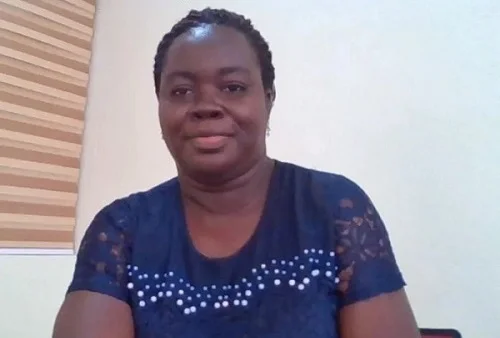Hot!
Lecturer condemns abolishing of road tolls

Dr Kennedy A. Alatinga, a Senior lecturer and Dean of the Faculty of Planning and Land Management of the SD Dombo University of Business and Integrated Development Studies has described as bad and ill- planned to abolish road tolls.
He also condemned the decision to tax mobile money transaction (Momo) above GH¢100.00 and other electronic banking.
Dr Alatinga said, in Wa after the 2022 budget presentation to Parliament, that unemployment was also likely to rise if the road tolls were abolished.
He explained that the road toll was instituted to generate help as part of revenue generation source to support the Road Fund, which was setup in 1985 to secure sources of funding for the preservation of the roads.
He said some provisions in the Road Fund Act, 1997 (Act 536) mandated the Road Fund board to ensure that the nation’s trunk, feeder and urban roads were regularly maintained and that generated revenue at the toll booths was mandatory.
Dr Alatinga said it was necessary to properly and transparently manage the road toll booths to generate more money for development.
“Already, we are grappling with poor road network and we know the havoc long vehicles from neighbouring countries are destroying our roads. So how do we allow all of them to run on our roads for free”, he said.
He claimed that there was excessive hardship in the country and that any policy that will let some people lose their jobs was a bad policy, which must have a second look to sustain jobs.
“Using traffic congestion as some of the reasons for abolishing the road tolls is not a good example because there are parts of the country where traffic congestion is heavier than even around toll booths.
There is no toll booth at Suame in Kumasi, but due to poor road network, there is always traffic congestion there”, he said.
On the tax on mobile and other electronic banking, Dr Alatinga said the situation will prevent people from transacting business electronically, especially as the country was talking about cashless economy. -GNA
Hot!
Swedru All Blacks back to winning ways, Roshan humble King Faisal

Sekondi Rospak FC made it eight wins in eight successive home games after three second-half goals from John Amoah, Joseph Ntow and Stephen Anthony Kofi. John Amoah opened the scoring in the 55th minute after a barren first half. Joseph Ntow added to the tally in the 56th minute before Stephen Anthony Kofi rounded things up in the 74th minute to give Rospak a 3-0 win over former Premier League side King Faisal.
Elsewhere at Swedru – leaders Swedru All Blacks humbled PAC Academy in an emphatic 2-0 win. Zayat Bubakari scored first for Swedru All Blacks in the 27th minute before Rudolf Junior Nana Kwasi Mensah made it 2-0 in the 34th minute. Swedru All Blacks are top of the table with 36 points – 4 points ahead of second placed Rospak FC.
Meanwhile, Former Premier League side Cape Coast Mysterious Dwarfs recorded their fourth successive home victory after beaten New Edubiase United 2-1 at the Robert Mensah Park. Enoch Odoom struck first for Cape Coast Mysterious Dwarfs in the 19th minute but Steven Asante equalized for New Edubiase United before halftime. After the interval, Godfred Eshun scored from distance in the 65th minute to help Cape Coast Mysterious Dwarfs secure all the points.
Here are the results in Zone Two

Hot!
Cervical Cancer alert: Avoid sex at early age

The Programmes Manager of Non-Communicable Diseases (NCDs) of the Ghana Health Service (GHS), Dr Mary Efua Commeh, has advised young girls to avoid sex at an early age.
This, she explained, will give the cervix the opportunity to mature before they become sexually active.
“You need to delay what we call the first sexual intercourse as much as possible to give the cervix the opportunity to mature before the person becomes sexually active,” she said.
Dr Commeh stated this in an interview with The Spectator in Accra on Tuesday as a part of the Cervical Cancer awareness month.
According to her, cervical cancer was the second leading female cancer in Ghana with a total of about 3,072 cases annually, and out of that, 1,815 deaths are recorded, representing more than 50 per cent.
She indicated that “If young girls are going to be sexually active, then you need to talk to your parents about being vaccinated.”
She explained that vaccinating young girls against human papillomavirus (HPV) has been found to be a very effective way of preventing cervical cancer.
“There are countries that started HPV vaccination years ago and they are not seeing any cervical cancers now because they would have eliminated most of the high-risk HPVs in their women. So if the high-risk HPV is not there, then obviously the results on cervical cancers are going to go down,” she added.
Dr Commmey said the HPV vaccination is recommended for young girls aged nine to 14 years, adding that it had been found to be highly effective, not just for cervical cancers but for other HPV-related cancers, such as anal cancers, cancers of the vagina, genital warts, amongst others.
She further elaborated that the idea is to put up a barrier before the HPV comes in and that once a young female encounters it, she is already protected.
She also mentioned that for cervical cancers, the main cause is called HPV infection, saying generally, all sexually active women acquire HPV at some point in their lives.
However, the Programmes Manager of NCDs at the GHS mentioned that the body has a way of clearing the HPV, explaining that it is a natural mechanism that goes on, unfortunately, there are a few women whose HPV persists.
Moreover, she noted that the numbers for Cervical Cancer tend to be much higher because at times, clients would wait, and try all sorts of medications before they finally report to the health facility saying “we actually lose some women before they get to the hospitals with over 75 per cent of the cases coming in its third and fourth stages.”
Dr Commey, therefore, called for public awareness while ensuring the availability of information for prevention and control.
By Jemima Esinam Kuatsinu







